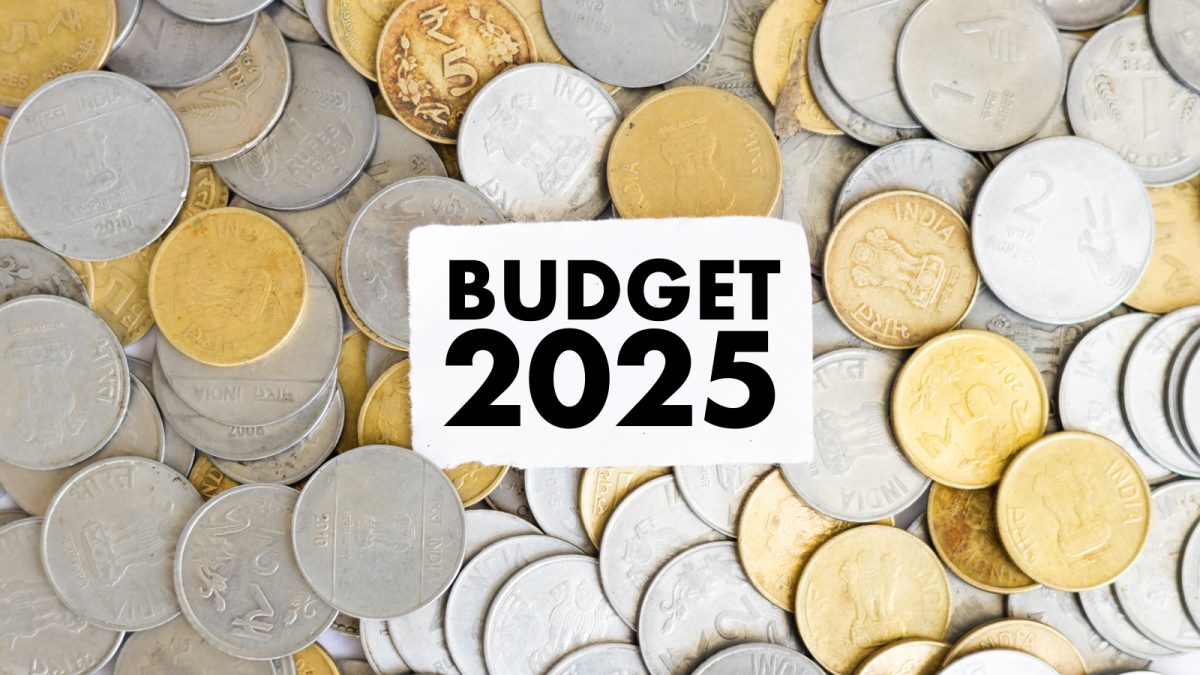Last Updated:
Given the economic slowdown and geopolitical uncertainties, bold reforms are expected from FM Nirmala Sitharaman to simplify the tax structure, increase the basic exemption limit, and lower the highest tax rate, among others.
The Union Budget 2025 is expected to bring bold tax reforms aimed at boosting disposable income, simplifying compliance, and enhancing financial security.
As India prepares for the Union Budget 2025 to be tabled on Saturday, taxpayers eagerly anticipate potential reforms in personal taxation. Given the economic slowdown and geopolitical uncertainties, bold reforms are expected to simplify the tax structure, increase the basic exemption limit, lower the highest tax rate, and boost growth, employment, savings, and investment.
Over the years, India’s tax system has evolved, with reforms like the new tax regime under Section 115BAC aimed at simplifying compliance. This year, the focus is on modernising the direct tax framework, simplifying tax rates and TDS provisions, promoting savings and investments, resolving litigation, and improving taxpayer clarity.
Key Expected Changes in Budget 2025
1. Reduction in Highest Tax Slab from 42.7% to 35.88%
Currently, the highest tax rates under the old and new tax regimes are 42.74% and 39%, respectively. These rates are significantly higher than in several developing economies such as Thailand, Indonesia, and Malaysia. Meanwhile, corporate tax rates have been rationalised to 25.17% (general companies) and 17.16% (eligible manufacturers), making them globally competitive.
To address this imbalance, the maximum marginal rate for individuals should be reduced to 35.88% (30% tax + 15% surcharge + 4% cess), bringing it in line with corporate taxation and simplifying compliance.
2. Increase in Basic Exemption Limit to ₹3.5 Lakhs
The basic exemption limit has remained unchanged since 2014 at ₹2.5 lakhs (old regime) and ₹3 lakhs (new regime). With inflation and rising costs, there is an urgent need to raise this limit to ₹3.5 lakhs for both regimes, providing much-needed relief to taxpayers.
3. Convergence of Old and New Tax Regime
Currently, individuals must choose between two tax regimes — the old regime (with deductions) and the new regime (without deductions but lower rates). However, complexity and lack of flexibility in switching between regimes have deterred many taxpayers from opting for the new regime.
A single, unified regime with a basic exemption limit of ₹3.5 lakhs, highest tax rate of 35.88%, and retention of key deductions (80C, 80D, housing loan interest deduction) is proposed to simplify compliance and increase taxpayer adoption.
4. Increase in Section 80C Deduction Limit to ₹2.5 Lakhs
The ₹1.5 lakh limit under Section 80C has remained unchanged since 2014, despite covering a wide range of investments like PPF, ELSS, life insurance, housing loan principal repayment, and tuition fees. To account for inflation, taxpayers expect this limit to be raised to ₹2.5 lakhs.
5. Extension of 80EEB Electric Vehicle Loan Deduction to 2027
Currently, taxpayers can claim a ₹1.5 lakh deduction on interest paid on electric vehicle loans, but only if the loan was sanctioned before 31st March 2023. Given the push for sustainability, this deadline should be extended to 31st March 2027 to encourage EV adoption.
6. Full TDS Credit for Taxpayers
Taxpayers often lose TDS credit when the income reflected in Form 26AS doesn’t match their declared income due to different accounting methods. The Budget should ensure full TDS credit in the year it appears in Form 26AS, preventing financial loss for taxpayers.
7. Increase in 80TTA Deduction for Savings Interest to ₹40,000
Currently, interest on savings accounts is exempt up to ₹10,000 under Section 80TTA — a threshold set in 2012. Given inflation, this should be increased to ₹40,000 and extended to include interest on fixed and recurring deposits.
8. Increase in 80D Medical Insurance Deduction to ₹1 Lakh & Inclusion of Non-Senior Citizens
The ₹50,000 deduction for medical expenses under Section 80D applies only to senior citizens. Given rising medical costs, this benefit should be expanded to all individuals, with the deduction limit increased to ₹1 lakh.
9. Increase in Home Loan Interest Deduction to ₹3 Lakhs
Under Section 24(b), home loan borrowers can claim ₹2 lakhs deduction on interest paid. With rising interest rates, this should be increased to ₹3 lakhs to provide relief to homebuyers.
10. Removal of 20% Cap on Interest Deduction for Dividend Income
Currently, only 20% of interest expenses on dividend income can be deducted under Section 57. The Budget should allow full deduction of related expenses to ensure fair taxation.
11. Increase in Gift Tax Threshold to ₹1.5 Lakhs
Under Section 56(2)(x), gifts from non-relatives above ₹50,000 are taxed. Since this limit was last revised in 2006, it should be raised to ₹1.5 lakhs to reflect inflation.
12. Increase in Advance Tax Threshold to ₹30,000
Currently, individuals with tax liability above ₹10,000 must pay advance tax under Section 208. Since this limit was last updated in 2009, it should be increased to ₹30,000 to reduce compliance burdens for small taxpayers.
13. Rationalization of TDS on Cash Withdrawals (Section 194N)
Currently, TDS at 2% is deducted on cash withdrawals exceeding ₹1 crore, even though these may not constitute taxable income. The provision should be revised to prevent unnecessary deductions.
14. Rationalization of Section 50CA and 56(2)(x) for Property Transactions
Currently, both the buyer and seller of unquoted shares or immovable property can be taxed twice under Section 50CA and 56(2)(x) if the transaction is below Fair Market Value (FMV). These provisions should be rationalized to prevent double taxation in genuine transactions.
15. Family Settlement to be Exempt from Capital Gains Tax
Although courts have ruled that family settlements are not transfers, Section 47 does not explicitly exempt them from capital gains tax. The Budget should include family settlements in Section 47 to provide clear tax relief.
16. Extend Due Date for Filing Belated Tax Returns to 31st March
Currently, belated tax returns must be filed by 31st December of the assessment year. Extending this to 31st March would allow taxpayers more time to gather documents and comply voluntarily.
17. Reconsideration of Buy-Back Taxation
From October 1, 2024, buy-back proceeds will be taxed as dividends under Section 2(22), while capital losses from share extinguishment can only be offset against long-term capital gains (taxed at 12.5%). This inconsistency should be addressed to align with the Companies Act and allow capital losses to offset dividend income.
The Union Budget 2025 is expected to bring bold tax reforms aimed at boosting disposable income, simplifying compliance, and enhancing financial security. Measures such as reducing the highest tax slab, increasing exemption limits, converging tax regimes, and expanding deductions will create a fairer and more taxpayer-friendly system, driving economic growth and investment.
Taxpayers are keenly awaiting the Finance Minister’s announcements, hoping for meaningful reforms that promote ease of compliance and equitable taxation.
(Suresh Surana is a CA and founder of tax and risk advisory firm RSM India)







